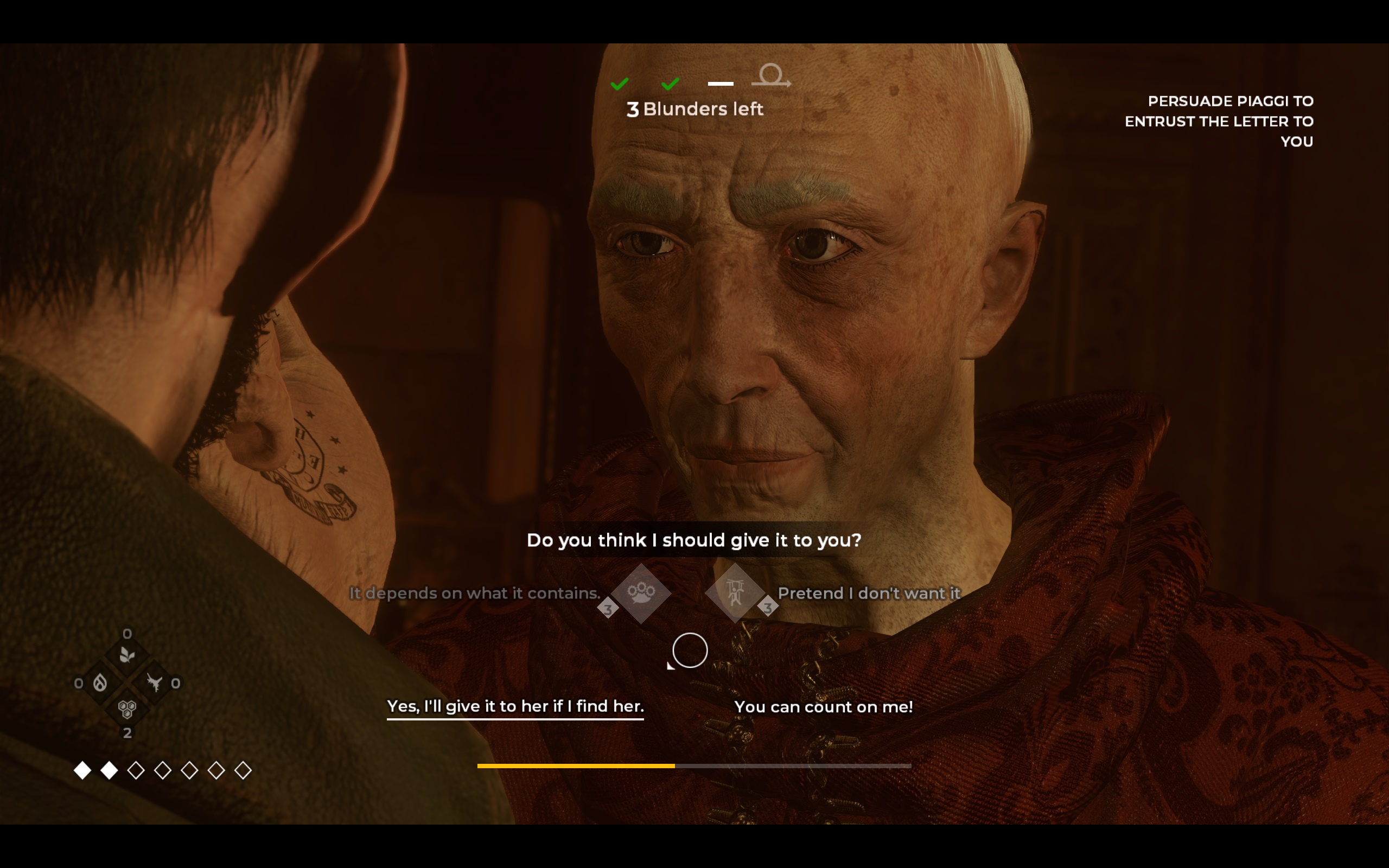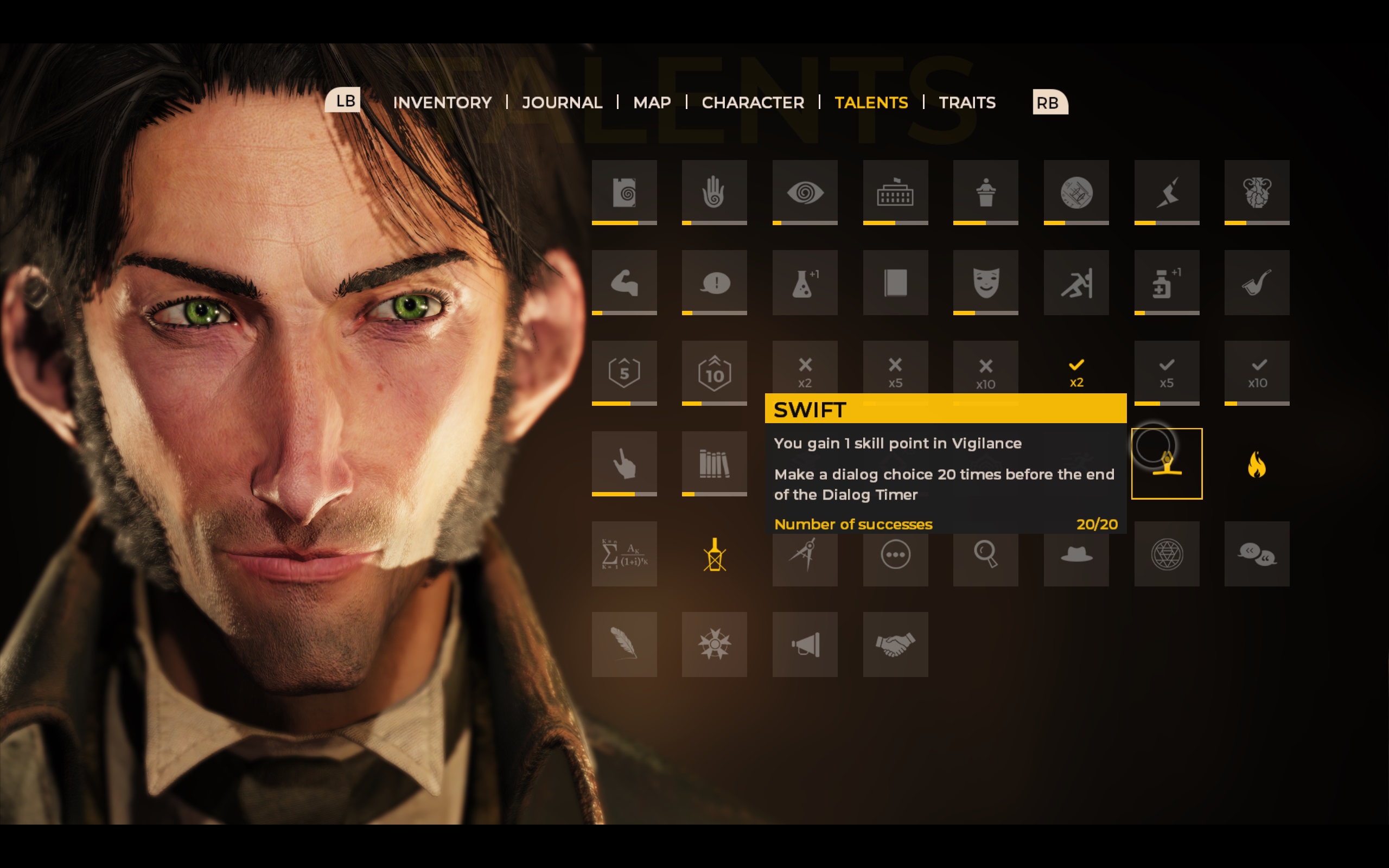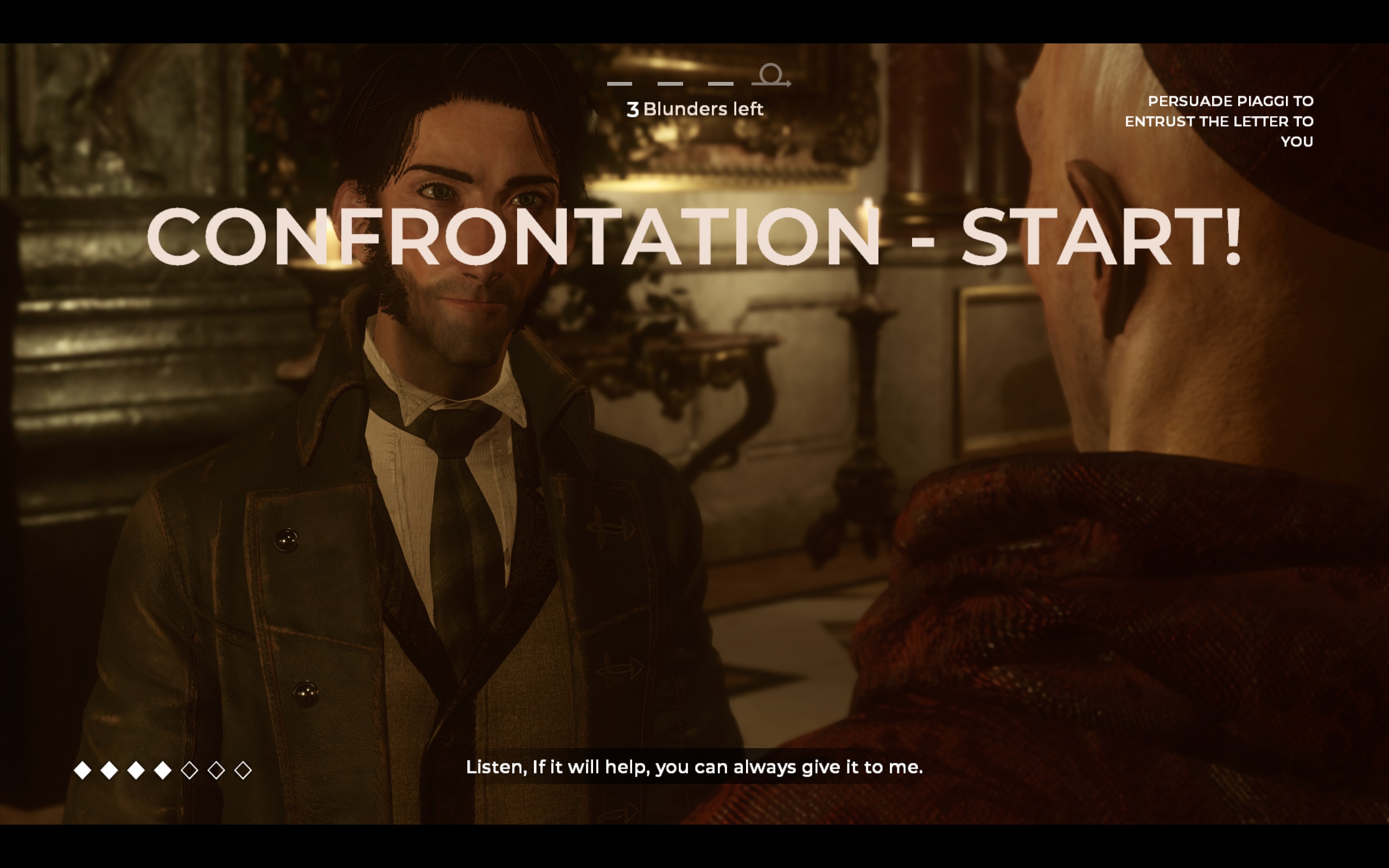The Council makes conversation feel as meaty as combat
The first episode of this 18th century mystery lets you talk to the monsters, if by monsters you mean aristocrats.
There are two questions people tend to ask about games: "What's it about?" and "What do you do?" Pairing those questions underlines a significant problem, because in many games what you do and what it's about are at odds. Poor old BioShock Infinite became the poster child for this phenomenon: it had ideas about free will versus determinism, about isolationism, racism and many other weighty -isms, but at the same time you were shooting bad guys by the hundred, whizzing around on zip-lines and electrocuting people. It was a blunt instrument to be exploring those ideas with.
By contrast, The Council concerns itself with a deeply human drama. It's 1793 and Louis de Richet's mother has gone missing on the island retreat of a secret order. As Louis your obstacles are people, and talking to them is the solution. Not killing. Not performing non-lethal takedowns. Just holding conversations. And by adapting familiar RPG systems to those conversations, gamifying the art of reading and manipulating people, The Council's "What do you do?" and "What's it about?" are uncannily well-matched.

What do you do in The Council? Well, you level up your parleying, subterfuge, observational skills, and psychology, then pit them against conversational opponents in quasi-boss battle encounters with branching consequences depending on your performance. And you collect coins. Despite placing its focus squarely on storytelling, The Council doesn't skimp on gamey interactions.
In fact, its conversation system runs so deep it's initially daunting to make sense of. Louis de Richet has 15 available character skills, 44 talents, and 20 traits that will make him behave differently in your playthrough than mine, and you only have partial agency over which of each are accrued. Character skills are where you spend points to develop particular abilities, and they're broken down into three types to help you decide how you want to play. During my first playthrough, I went all in on the diplomacy tree—it's a game about talking to people, after all, full of world leaders and morally dubious dignitaries you have to grill about your missing mother. Diplomacy seems like a useful skill.
...talents look like they're visiting from the menu screen of an 80-hour RPG.
But as I played, I found myself missing opportunities to observe something important, pick a lock, or say the perfect retort because of my choices. It's not so much that The Council makes you feel like you've picked the wrong skills, more that it makes you aware of all the other paths you could have taken, and builds anticipation for the moments when your particular skillset is called on.

Talents are separate from skills, and they bestow permanents character bonuses on Louis. Some are gained by leveling skills up to a certain point, performing specific actions, or consulting your journal for useful snippets of info about other characters' weaknesses and immunities. While skills are absolutely showered on you as you play—to the extent that maxing them all out by the end of episode three feels like it will be entirely possible—talents look like they're visiting from the menu screen of an 80-hour RPG. There are 44 of them!
Most interesting, I think, are traits, the third way of defining Louis. Traits are permanent positive or negative effects you don't know you're gaining until it's too late. You gain them after your blunders and successes. It's one of several ways The Council forces you to live with your mistakes. I'm permanently stuck with the naive trait in my playthrough because my weak line of questioning towards a certain character failed to extract the info I needed.
Keep up to date with the most important stories and the best deals, as picked by the PC Gamer team.
About that: conversations work like boss fights. Actually, they're even more like insult sword-fighting from the Monkey Island games, multi-stage affairs that require you select just the right response or line of questioning depending on the context of the dialogue. Make three blunders in one conversation and you'll fail it, causing a ripple of permanent impact on the story. Succeed, and you'll charm your company into disclosing information that'll help your quest to locate mummy dearest in Lord Mortimer's suspiciously opulent manor.

We've seen this type of thing before, broadly speaking—the Monkey Island games are more than 20 years old now and many games have used dialogue trees to similar effect since. What's interesting is that you're deploying conversational responses like a resource, managing items and abilities. Every action that uses one of your skills costs action points. Consumables like royal jelly replenish your action points mid-conversation, while devil's thorn reveals vulnerabilities and immunities for a short time. It's like stocking up on potions before heading into the dragon's cave, except you're wielding words and wit in place of a magic sword.
None of this cleverness erases The Council's shortcomings. The iffy voice acting harks back to 1990s adventure games in a way that only sort of manages to be charming, while the camera and movement both feel stiff and unpolished. It's by no means a slick, big-budget game. But it's trying something truly different, and doing it well.
I don't feel the absence of combat, spellcasting, or the things usually associated with a game carrying skill trees, and that's exciting. It opens a door for other games to follow suit, marrying deep systems with non-traditional interaction types. The Council goes further in adapting the Telltale adventure formula than just removing zombies and Baratheons—it shows that you don't have to pare games down to the bare bones if you want to tell a story about people. There's a place for buffs, perks, and leveling up in human drama just as much as there is in galaxy-spanning action-RPGs.
That said, a polite reminder for The Council: in any game with voice acting, it's important to have good voice acting. Especially when it's all about talking.
The first episode of The Council is available now, with four more on the way.
Phil 'the face' Iwaniuk used to work in magazines. Now he wanders the earth, stopping passers-by to tell them about PC games he remembers from 1998 until their polite smiles turn cold. He also makes ads. Veteran hardware smasher and game botherer of PC Format, Official PlayStation Magazine, PCGamesN, Guardian, Eurogamer, IGN, VG247, and What Gramophone? He won an award once, but he doesn't like to go on about it.
You can get rid of 'the face' bit if you like.
No -Ed.


